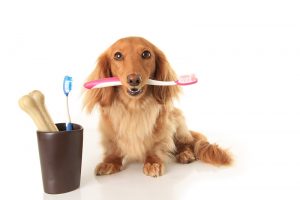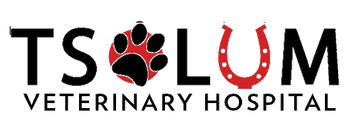
Home care for your dog of cat after a dental procedure
Note: If there is a medical concern regarding your pet’s recovery please contact us at (778) 428-6401 during regular business hours. After regular business hours please contact Central Island Veterinary Emergency Hospital Toll-Free: (877) 773-7079 or a Veterinary Hospital of your choice.
Things to know when you bring your pet home from a dental procedure:
Anaesthesia
- Your pet may be drowsy for 24 hours from the anesthesia. Some pets may shiver, have an upset stomach and may vomit.
- Lethargy lasting for more than 24 hours post op, with continued diarrhea and or vomiting are not normal and you should call the hospital immediately.
Recuperation Environment
- It is very important to keep your pet warm and indoors the first night following surgery.
- The first night at home, keep your pet in a quiet and confined area where she/he can be easily monitored.
Food and Water
- Your pet may not have much of an appetite post-surgery – do not worry if she/he doesn’t eat the first night at home.
- Even if your dog or cat did not have extractions done today, he or she will probably have a sore mouth for the next 2-3 days. If extractions were performed, the soreness may persist for 4-5 days. You can feed your dog or cat a small meal tonight (about half of normal amount) as well as some water. Tomorrow you can feed a normal amount of food and water, but we ask that you feed canned food or kibble that has been softened with water for the next few days.
- If extractions were performed, do not be surprised if you notice a small amount of bleeding from your cat or dog’s mouth. You may notice a small amount of blood in the water dish, too after he/she has a drink of water. This is normal. Although a small amount of bleeding may be expected following extractions, significant bleeding in NOT expected and you should contact us right away if you have any concerns.
Antibiotics:
Some animals with evidence of severe subgingival infection may require antibiotics for 10 days or so following their teeth cleaning. This decision is made on a case by case basis, and your companion may or may not need to go home on antibiotics.
Dental Follow Up
We ask that you bring your pet back in 14 days after their dental surgery so that our technicians can check everything is healing as it should. At this time our technicians can offer advice on preventative care, show you how to brush your pet’s teeth and also are happy to offer a COMPLIMENTARY bag of Hill’s TD to try at home.
Prevention
A professional dental cleaning was an important part of slowing down the progression of periodontal disease. Following up with an oral maintenance regime at home can further prevent or delay its progression. There are many effective and manageable products available on the market today to help with your pet’s oral hygiene. We have listed a few below, as well as some popular product choices many pet owners choose to use at home.
- Brushing your cat or dog’s teeth can be an important part of maintaining good oral health. Both finger brushes and “regular” toothbrushes are available. There are a variety of flavored toothpastes available for animals that make the process an enjoyable one. In fact, many dogs enjoy having their teeth brushed because the toothpaste is actually a tasty treat for them. Cats, on the other hand may or may not view the toothpaste as a treat! Remember that your companion’s mouth is sore right now, so wait for about two weeks before starting brushing regime.
- Other options to brushing: Oral rinses are a great alternative when brushing is not an option. A simple additive to your pet’s daily drinking water can aid in the prevention of further disease. Other products include oral wipes, and chews specifically designed to take tartar off your pet’s teeth. All are available on our webstore.
- Diet: Probably the most popular choice with pet owners is the dietary option which could potentially make a BIG difference to your animal’s periodontal health. Prescription diets such as Hill’s T/D and Purina Veterinary DH are dry kibble which breaks in such a way as to shear tartar off of your dog or cat’s teeth. (see diagram) . It is most effective at preventing tartar build-up on teeth which have recently been cleaned. We recommend starting your dog or cat on this diet approximately two weeks after the teeth cleaning (to allow time for any soreness to go away).
Products
Ask us about: Enymatic dental treats, Veggie Dents, water additives and rinses, and toothpaste!
